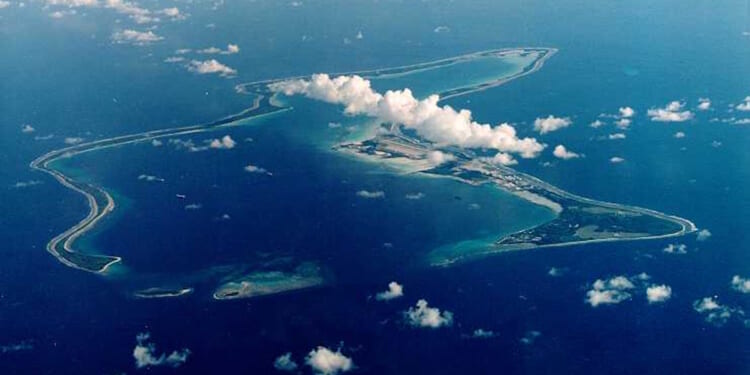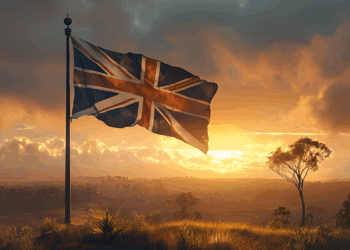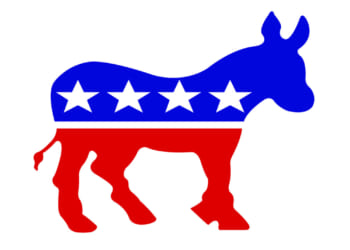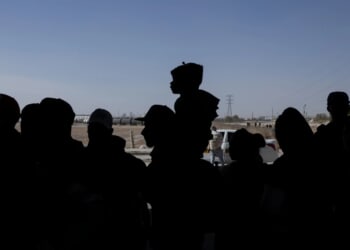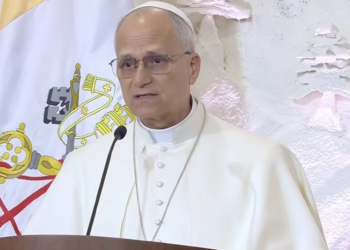James Tumbridge is a barrister and partner at Keystone Law, a city councillor, and sometime advisor to Conservative politicians. He is counsel in a judicial review seeking to have the Chagossian people consulted before their rights are changed.
The plight of the Chagossian Community people (also called the Ilois) is sadly not well known. They are a people that have been poorly treated, they are being ignored by our Government, and it has a racist underbelly.
The Chagos Islands in the Indian Ocean are about 990 miles from India, and a whopping 2,100 miles from Africa. They currently form the British Indian Ocean Territory (BIOT), a British overseas territory, created by Order in Council in November 1965 under the Labour Government of Harold Wilson.
The islands had people living on them from around 1715 to 1970. Until 1810 they were a French possession, and then became British formally under Treaty in 1814. During the Wilson Government, a decision was taken to forcibly remove the inhabitants to make way for a military base with the USA on one of the islands, Diego Garcia.
Up to the 1970s, the Chagos Islands had been home to the Chagossians, a Bourbonnais Creole-speaking people. This ended when the Labour Government expelled them and forcibly left them in a variety of places – some in Mauritius, where the local population is largely of Indian descent and where, sadly, the dark skinned Chagossians were not well treated.
The stories from that period are harrowing, with poverty, racism and the need to work in prostitution all consequences of the forcible removal. Now, a new Labour government is planning to twist the knife again into these poor people by giving away their homeland to Mauritius – and they refuse to consult them.
The Chagossians have been in exile since the 1970s. Their removal is seen as an unlawful act and crime against humanity. The peoples of Mauritius and of the Chagos archipelago are ethnically and historically distinct and separate, and there was never native Mauritian control over the islands as opposed to the colonial governance (first by France, and then the UK after 1814). The concern for Chagossians has been recognised many times; for example Human Rights Watch reported in 2023 that:
“The BIOT authorities forced Chagossians to go to Seychelles or Mauritius. There, many lived in extreme poverty and experienced difficulty finding sufficient and adequate food, work, and housing. Chagossians said that some of those displaced, including children, died from the economic hardship and, they believe, from the emotional devastation (which they call “sagren”) of being torn from their homeland. They experienced discrimination in their new communities, and many have said they still experience severe economic hardship.”
The English High Court has in the past recorded the sad facts as to the experience of the Ilois/Chagossians:
“The Ilois were experienced in working on coconut plantations but lacked other employment experience. They were largely illiterate and spoke only Creole. Some had relatives with whom they could stay for a while; some had savings from their wages; some received social security, but extreme poverty routinely marked their lives. Mauritius already itself experienced high unemployment and considerable poverty. Jobs, including very low paid domestic service, were hard to find. The Ilois were marked by their poverty and background for insults and discrimination. Their diet, when they could eat, was very different from what they were used to. They were unused to having to fend for themselves in finding jobs and accommodation and they had little enough with which to do either. The contrast with the simple island life which they had left behind could scarcely have been more marked.”
The Labour Government have denied that the Chagossians are an indigenous population. The denial of consultation to this ethic minority group, and to place their islands with a foreign power known to look down on them, is very troubling.
But they have been forced to accept Chagossians exist, and it is in this context a last attempt to force the Government to listen to the people is underway. A Judicial Review Permission hearing on October 28 hopes to gain a full hearing in the new year, and to force ministers to consider the impact on the Chagossians of their decision and to properly consult the people.
The Judicial Review argues that the Labour Government have not adequately and lawfully consulted the Chagossian people, including British citizens, concerning their interests, including resettlement rights.
Consider for a moment that from the 1960s until 2025, the British Government has said no one can inhabit any of the Chagos Islands whilst there is a military base. Yet once the islands belong to Mauritius, they can re-populate all but the island with the base – is that not a significant shift in view? Should this not mean the Chagossians be consulted on whether they might like to now return?
The application to court also asks the Government to accept and treat the existence of the Chagossian people as an ethnic race of peoples. Yet Labour, who one might think care about ethnic peoples, are refusing to do this.
During David Cameron’s premiership, he consulted the people on creating a marine reservation. Yet there is no consultation when ceding the islands.
A limited right to visit the islands was created at this time, so that people might visit their ancestral homes and graves of their forebears. This Government claims that was to sill happen and re-start this year, but it has not. The Foreign office even said in their Equality Impact Assessment that: “In parallel to the Treaty, FCDO has also agreed with Mauritius to resume heritage visits in 2025, reflecting the significance of these visits for some Chagossians and enabling visits to family graves.” Yet recent requests to arrange visits have met with silence.
The lack of consultation is shocking on many levels, let us take just one, the impact on citizenship rights: The ability of Chagossians to access British nationality under a special route is based on the Conservative enacted British Nationality Act 1981, the right being inserted by the Conservative Government in the Nationality and Borders Act 2022.
The change allowed British overseas territories citizens (BOTC) to be registered as a British citizen. The Government bill to give away the islands will change this: once enacted, the BIOT would no longer be listed in the 1981 Act, and so would no longer be treated as a British overseas territory for British nationality purposes.
As such, the new provision will not allow any Chagossian to continue to register as BOTC and in addition they will not be able to transmit BOTC to their children (through their status as a registrant under this route). So this Government is affecting citizenship rights, but not willing to consult? Why is this ethic group so underserving of any care by this Government?
The reason for the government legislating in this way in the Bill appears to be a political decision that Chagossians should not continue to register as BOTCs based on a connection to a place which is no longer a British territory. Yet generations of Chagossians had been made to live outside of British territory by a decision now acknowledged was enacted and enforced unjustly.
This Government does not seem to weigh the rights of Chagossians very highly – but I hope the courts will determine the people deserve consultation.

